The Pahalgam Terrorist Attack, occurring on April 22, 2025, in the Baisaran Valley of Pahalgam, Jammu and Kashmir, has emerged as a significant event in the region’s ongoing security challenges. This attack, targeting tourists in a popular scenic area, resulted in significant casualties and has sparked widespread discussion on terrorism, security, and the impact on local tourism. This report provides a comprehensive analysis, drawing from available sources to ensure accuracy and depth.
The attack took place at approximately 14:50 on April 22, 2025, in the Baisaran meadow near Pahalgam, located in the Anantnag district of Jammu and Kashmir. Pahalgam, often dubbed “mini Switzerland” for its natural beauty, is a key tourist destination, accessible primarily by foot or horseback, which added complexity to the response efforts. The timing, during the peak tourist season, suggests a deliberate choice to maximize impact.
Militants, estimated at 4 to 6 in number, emerged from the surrounding forests, dressed in military-style uniforms to pose as security personnel. Their method involved asking for names, checking for circumcision, and requesting victims to recite the kalma (Islamic creed) to identify non-Muslims, a tactic that spared most women but targeted others systematically. The use of M4 carbines and AK-47 resulted in a rapid and deadly assault, with gunshots heard across the meadow, as evidenced by eyewitness accounts and videos circulating online.
Rescue operations were immediate but challenging due to the remote location. Locals used ponies to assist in evacuating the injured, while authorities deployed a helicopter, highlighting the logistical difficulties in such areas. The area was subsequently cordoned off for investigation, with security forces, including army commandos, launching search operations to trace the perpetrators.
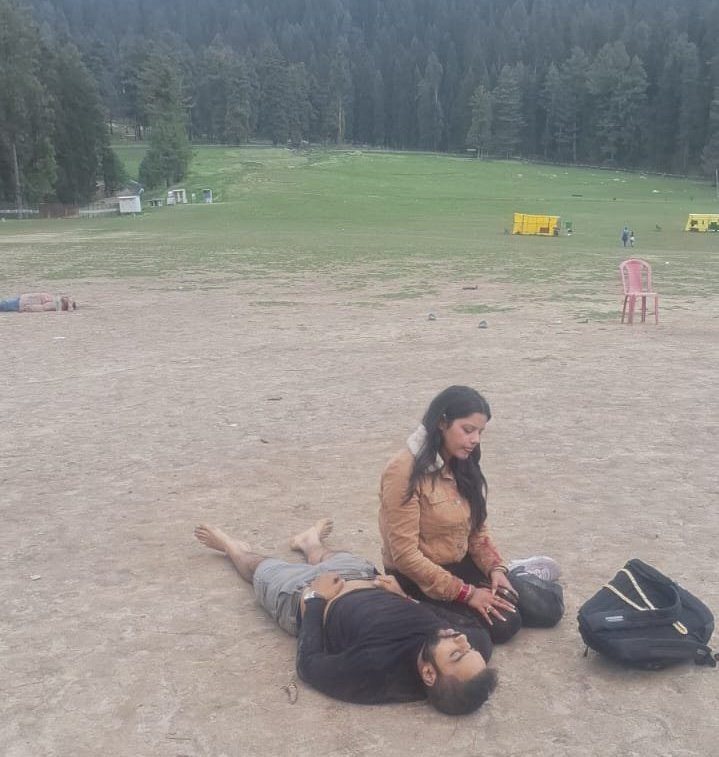
The Pahalgam Terrorist Attack resulted in at least 28 deaths, with detailed breakdowns indicating 24 Indian tourists, 2 locals from Jammu and Kashmir, and 2 foreign tourists from Nepal and the UAE. The injured numbered 20, with initial reports suggesting some in critical condition, though later updates confirmed stability for those admitted to Pahalgam hospital.
Notable victims included Lieutenant Vinay Narwal, a 26 Y/O Indian Navy officer from Haryana, married just six days prior on April 16, and an Intelligence Bureau official, underscoring the indiscriminate nature of the attack. Casualties were distributed across states, with deaths reported from Karnataka, Kerala, Maharashtra, Odisha, Gujarat, Haryana, West Bengal, and Uttar Pradesh, and injuries from Gujarat, Tamil Nadu, and Maharashtra, reflecting the diverse tourist demographic.
Eye witness accounts, such as a survivor recounting, “We were just having bhelpuri… and then he shot my husband,” highlight the sudden and traumatic nature of the attack, with some reports noting gunmen shooting at point-blank range, adding to the horror.
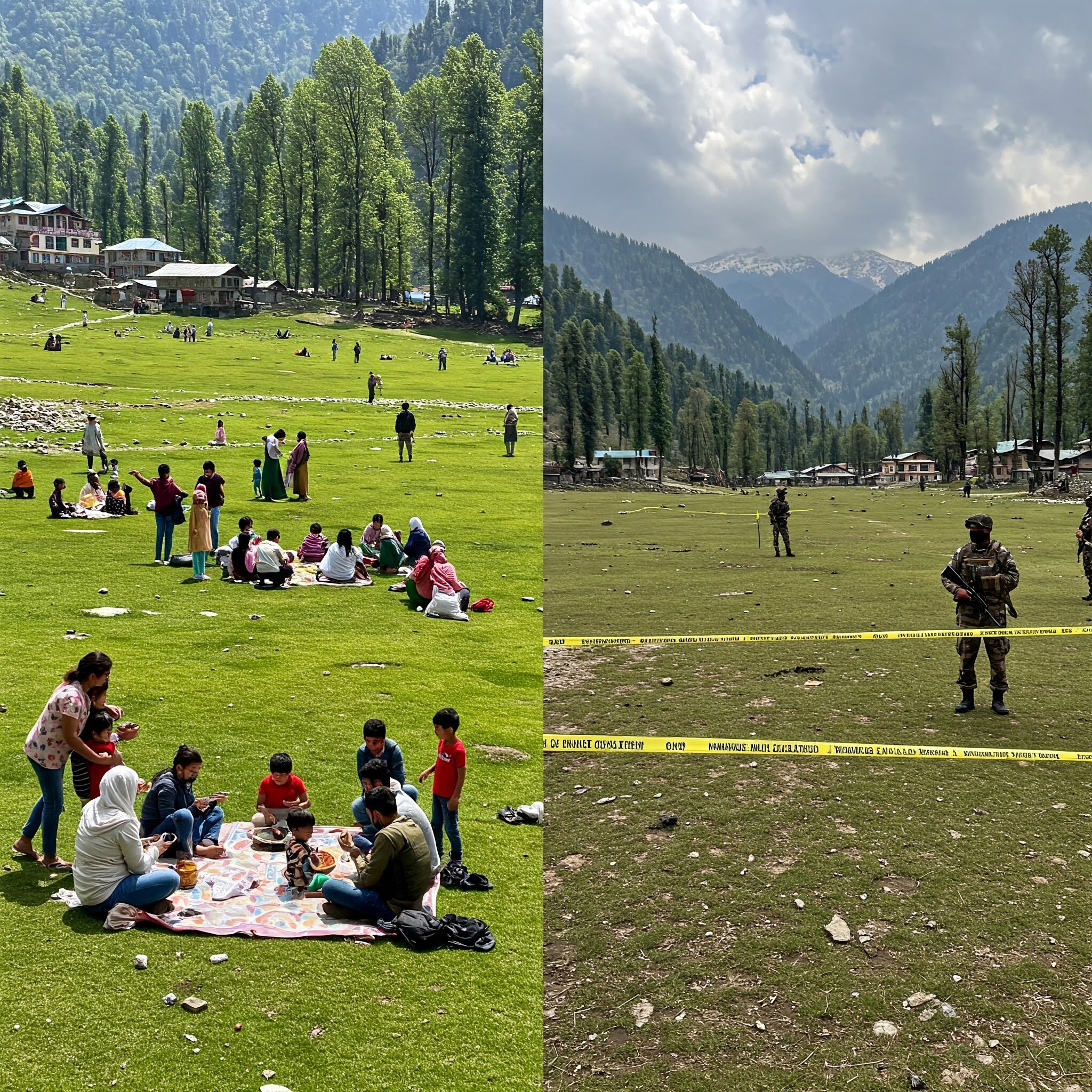
The Resistance Front (TRF), an offshoot of Lashkar-e-Taiba based in Pakistan, claimed responsibility for the Pahalgam Terrorist Attack. TRF is known for its militant activities in Jammu and Kashmir, often linked to broader insurgent movements. The involvement of 4 to 6 militants suggests a coordinated effort, with the attack’s planning likely aimed at high visibility during the tourist season.
The motive, as reported, centers on Islamic terrorism, with militants expressing anger over the settlement of 85,000 “outsiders,” perceived as driving demographic changes in the Kashmir Valley. This narrative aligns with previous incidents where terrorist groups have targeted civilians to resist perceived threats to regional identity, highlighting the complex interplay of local grievances and external support.
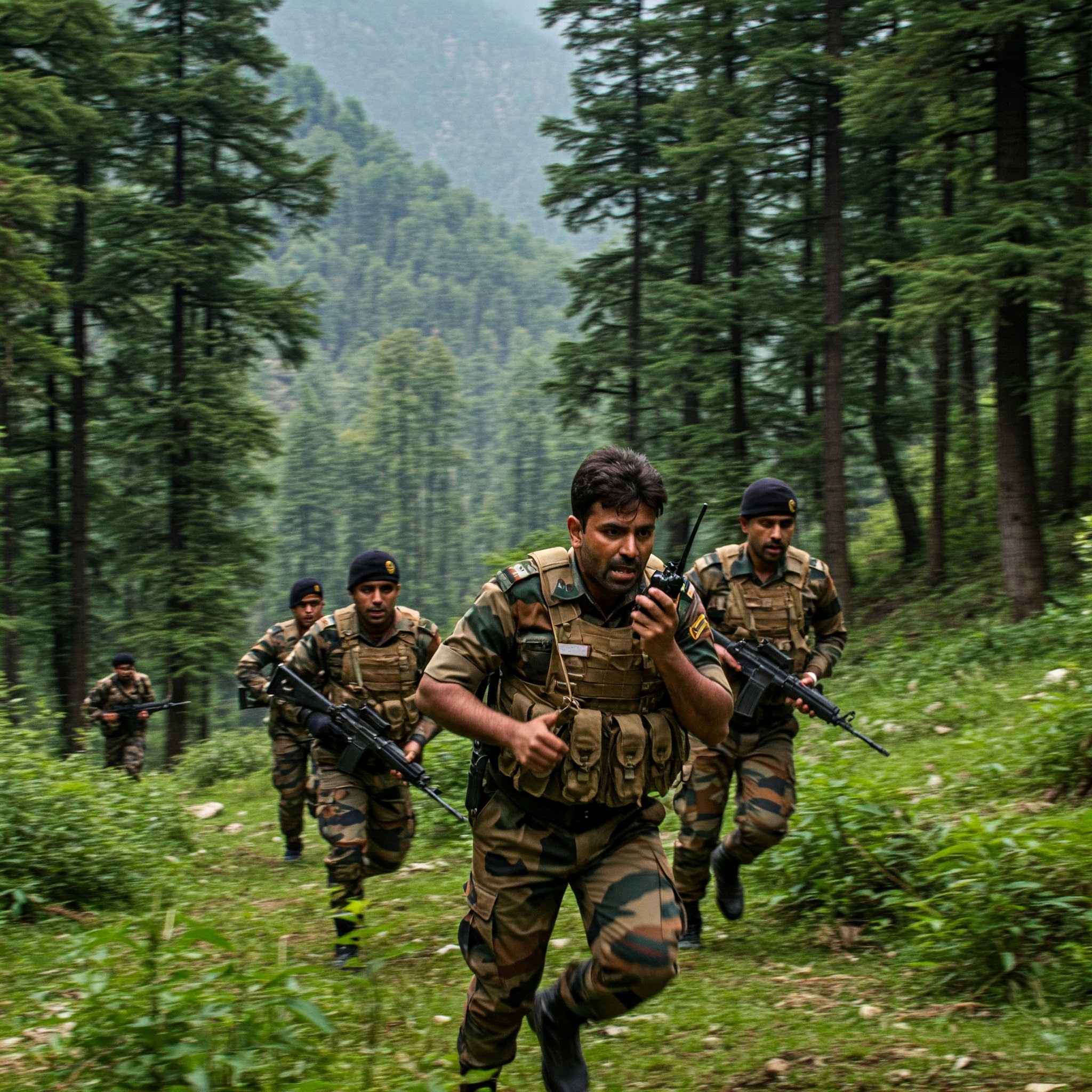
The Indian government’s response was swift and high-level. Prime Minister Narendra Modi, cutting short his visit to Saudi Arabia, returned to India and held a meeting with National Security Advisor Ajit Doval and External Affairs Minister S. Jaishankar at Delhi airport on April 23, 2025, at 09:54 AM IST, to assess the situation. Home Minister Amit Shah was in Srinagar, meeting victims and overseeing operations, while Finance Minister Nirmala Sitharaman also cut short her US and Peru visit to return, emphasizing the attack’s gravity.
Security forces deployed additional troops, including army commandos, and launched a manhunt, with the area cordoned off for investigation. A helpline was established, with contacts like the Police Control Room Anantnag (9596777669, 01932225870, WhatsApp: 9419051940) provided for assistance. Protests in Kashmir blamed Pakistan, reflecting regional tensions.
Internationally, the attack drew condemnation from leaders like US President Donald Trump, Russian President Vladimir Putin, and Israeli Prime Minister Benjamin Netanyahu, with statements expressing solidarity and support for bringing perpetrators to justice. The European Union and United Nations also denounced the attack, amplifying global outrage.
Domestically, political leaders across parties condemned the attack. Omar Abdullah described it as “larger than recent civilian attacks,” President Droupadi Murmu called it “dastardly and inhuman,” and Rajnath Singh labeled it an “act of cowardice.” Congress leaders Priyanka Gandhi and Rahul Gandhi termed it a “crime against humanity” and “horrific,” respectively, calling for justice and support for victims’ families.
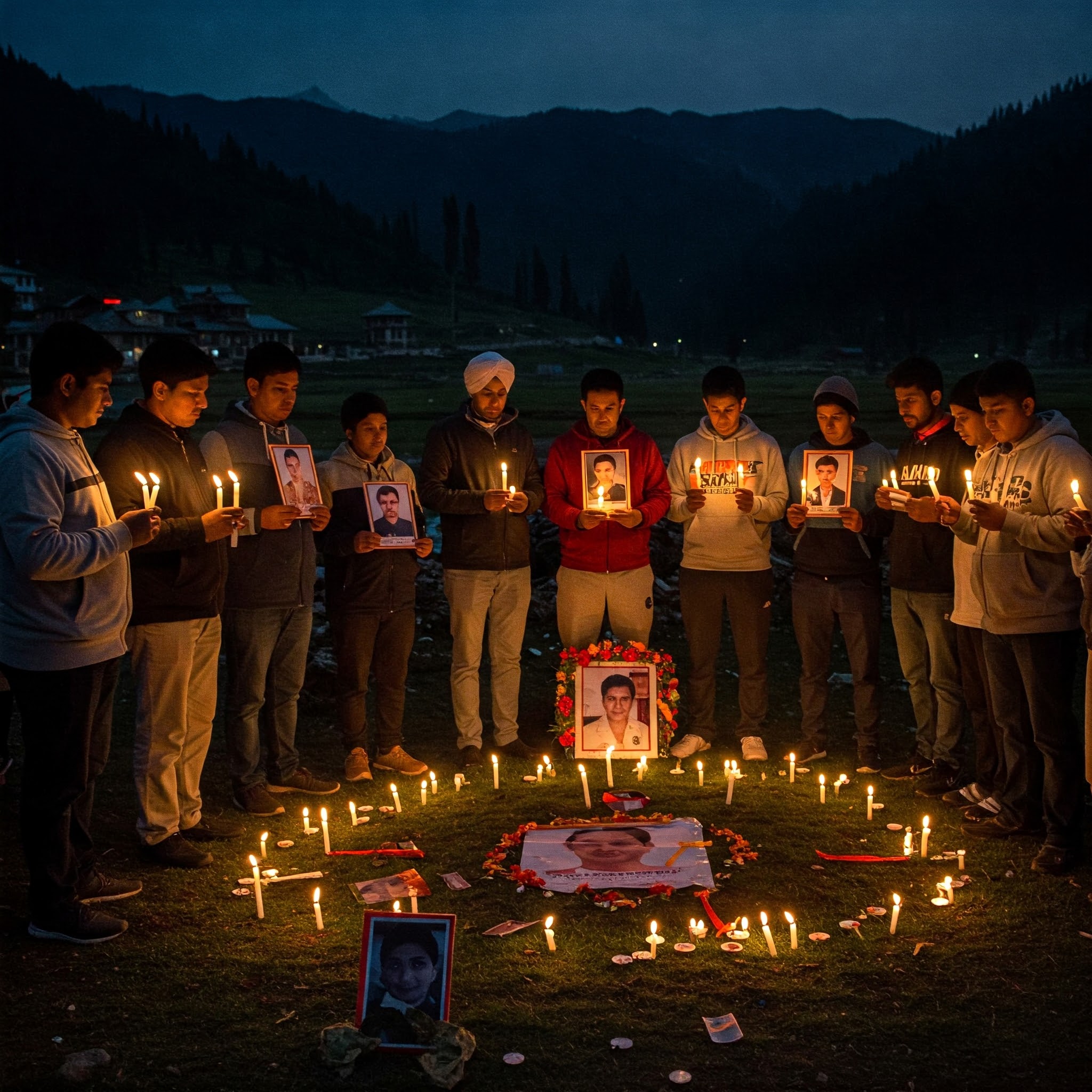
Pahalgam’s status as a tourist hub, with its scenic meadows and trekking trails, makes the Pahalgam Terrorist Attack particularly concerning for the local economy. The attack has raised fears about tourist safety, potentially deterring visitors and affecting livelihoods dependent on tourism. Enhanced security measures, such as increased patrols and surveillance, are likely, with the government possibly reviewing protocols to prevent future incidents.
The broader context includes the region’s history of conflict, with terrorist groups exploiting local grievances. Addressing these challenges requires a balanced approach, combining security enhancements with efforts to promote economic development and political dialogue, ensuring tourism can recover while maintaining safety.
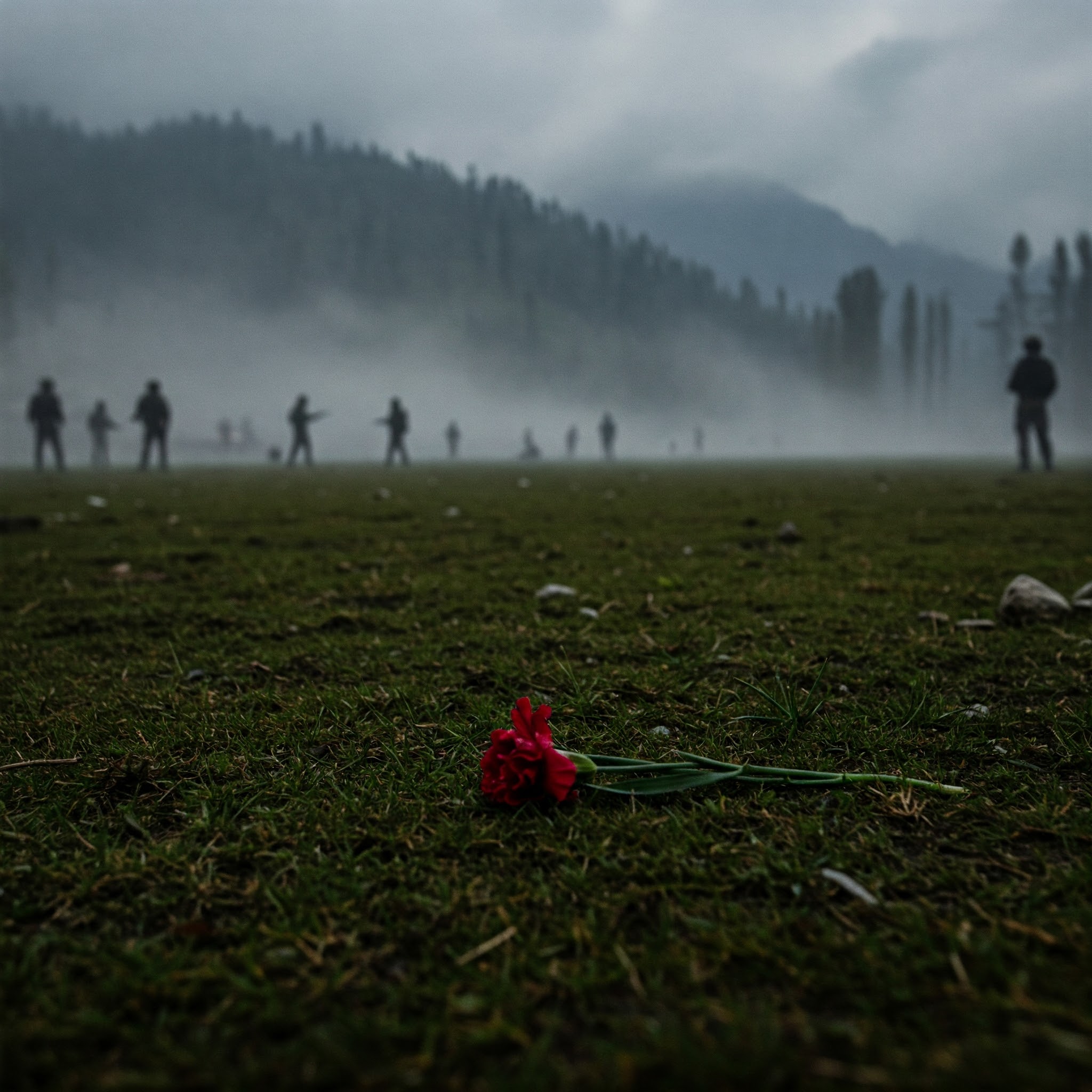
The Pahalgam Terrorist Attack of April 22, 2025, is a tragic reminder of the ongoing security threats in Jammu and Kashmir. With 28 lives lost and 20 injured, the incident has united the nation and international community in condemnation, highlighting the need for robust counter-terrorism measures. As investigations continue and security is bolstered, the focus must remain on justice for victims and ensuring such acts do not deter the region’s resilience and potential for peace.
You may also like to know How to make Money Online
Administrator
Welcome to Untold Theory, where innovation meets insight. We are dedicated to uncovering the hidden dimensions of technology, science, and the digital world. Our mission is to deliver 100% accurate content that keeps you ahead of the curve.we bring you the latest trends, deep dives into emerging technologies, and thought-provoking analyses—all designed to fuel your curiosity. Untold Theory is your go-to source for exploring the untold stories behind the world's most transformative ideas.Join us on this journey of discovery, where every article sheds light on the theories shaping our future.